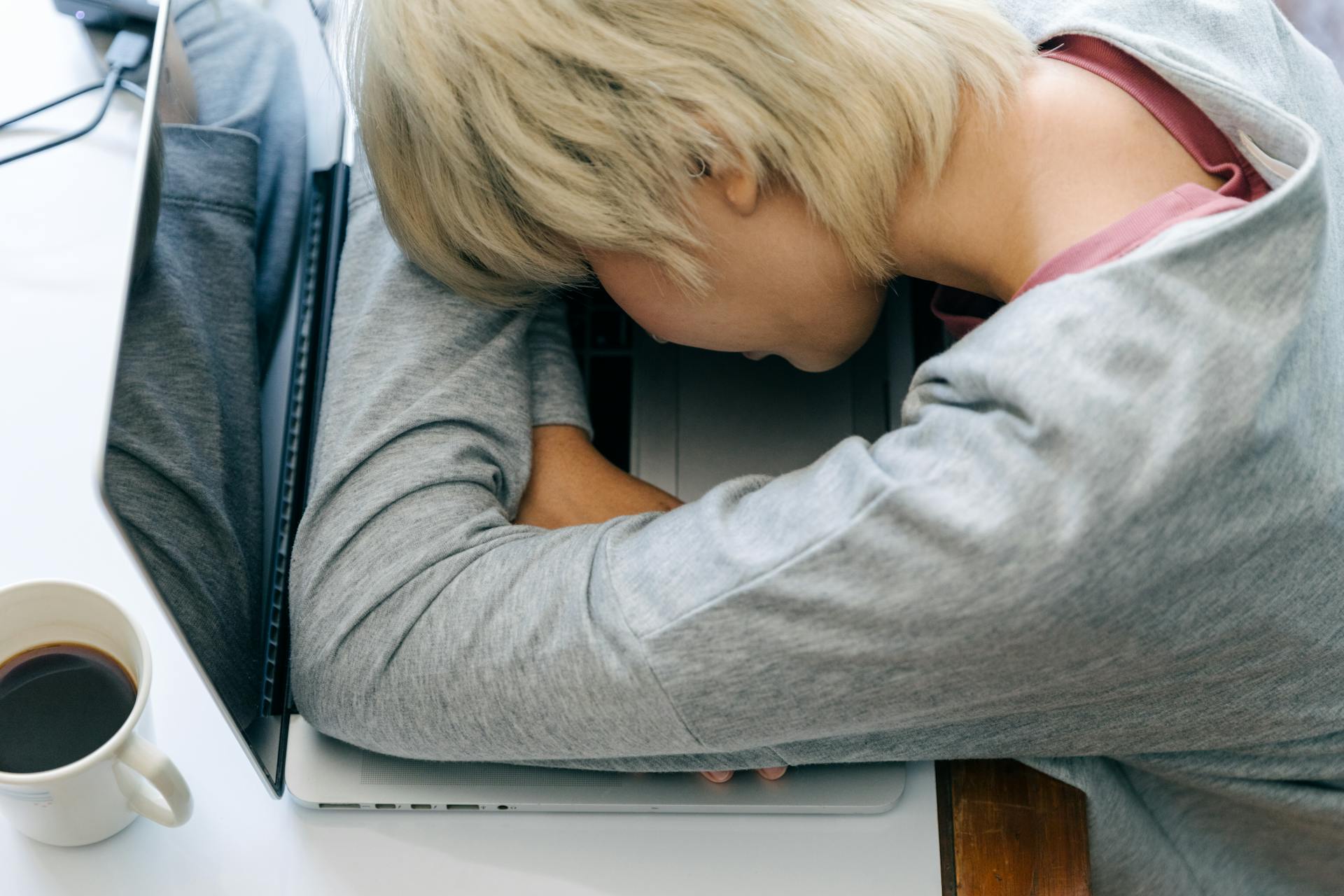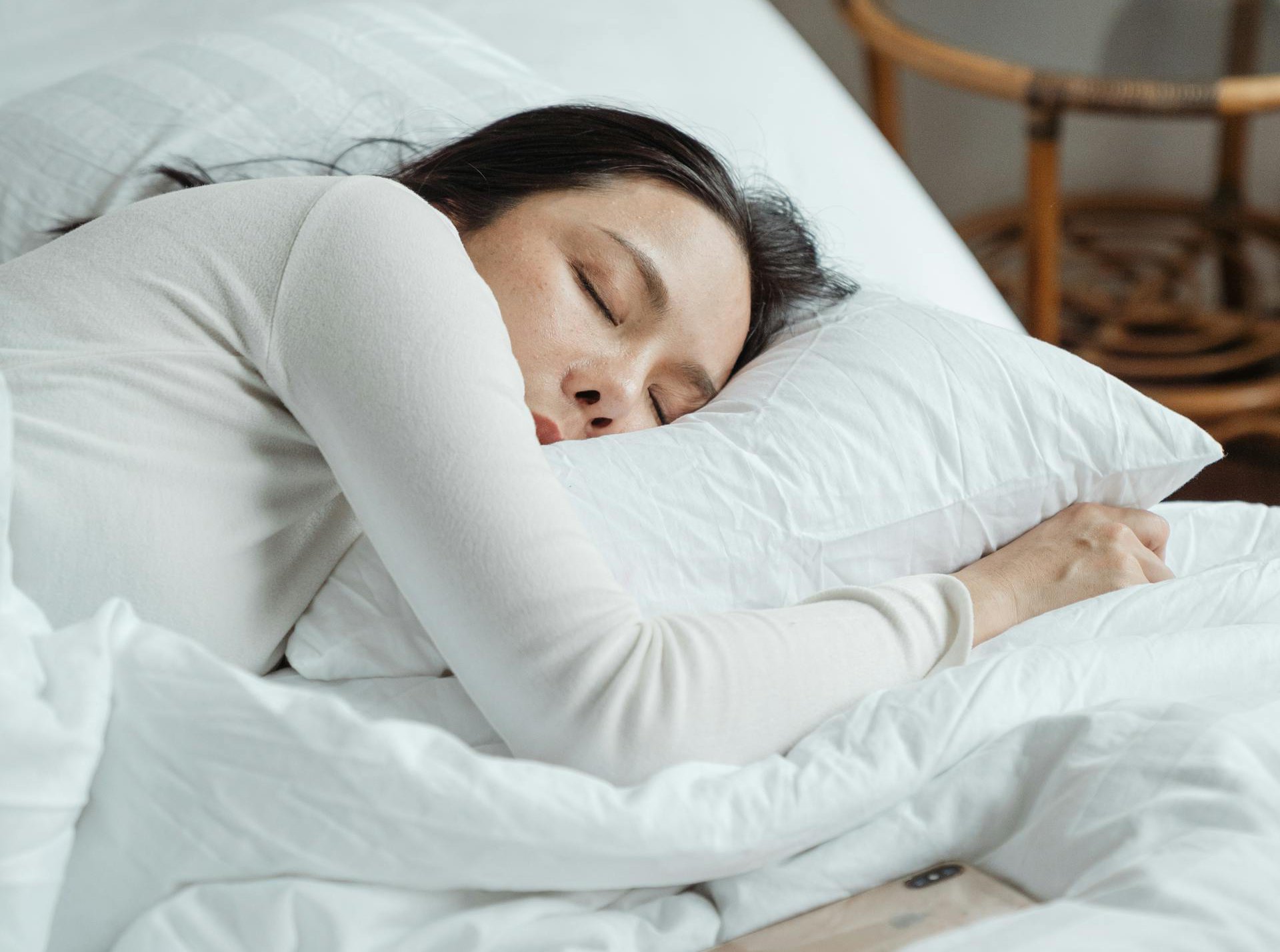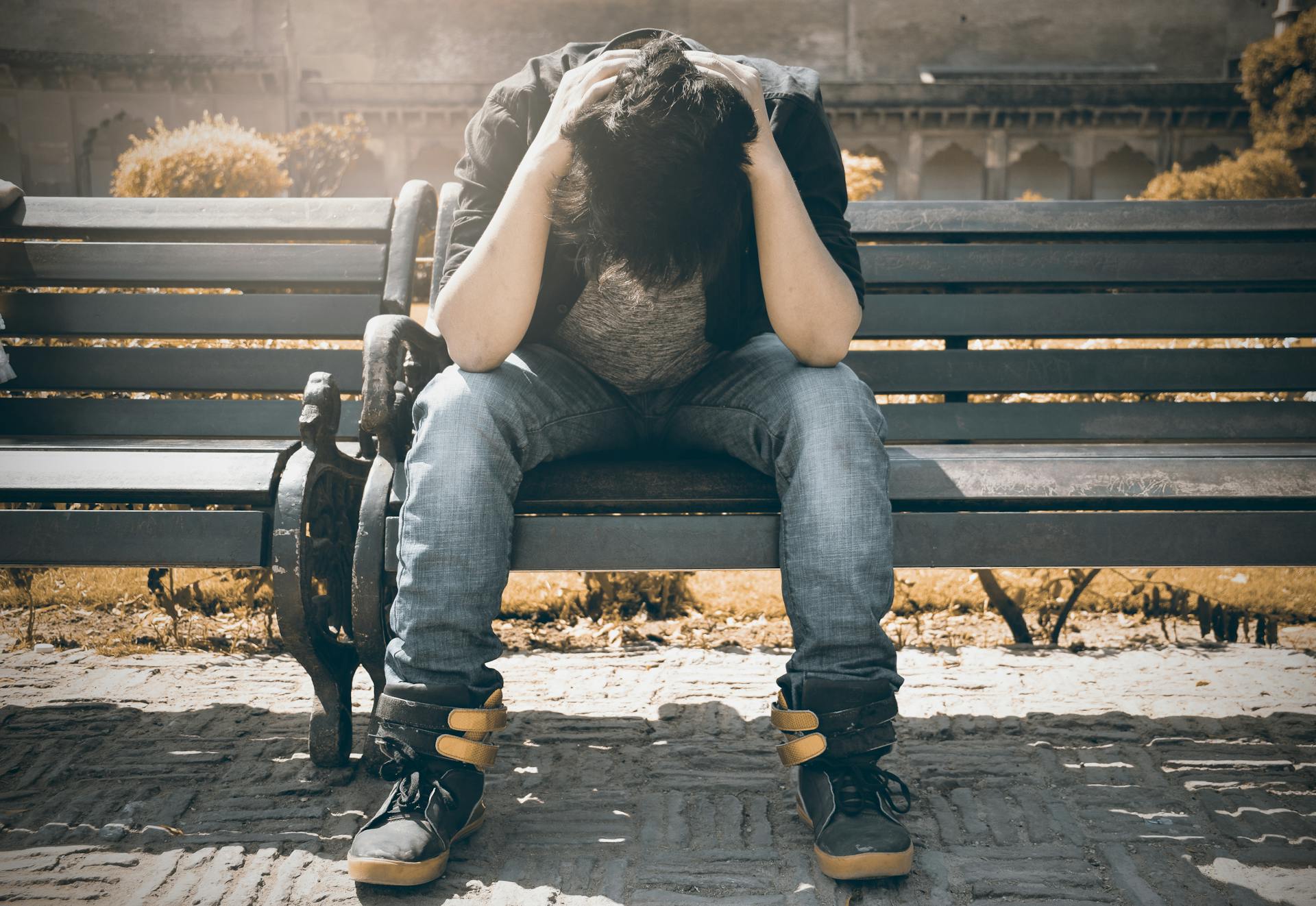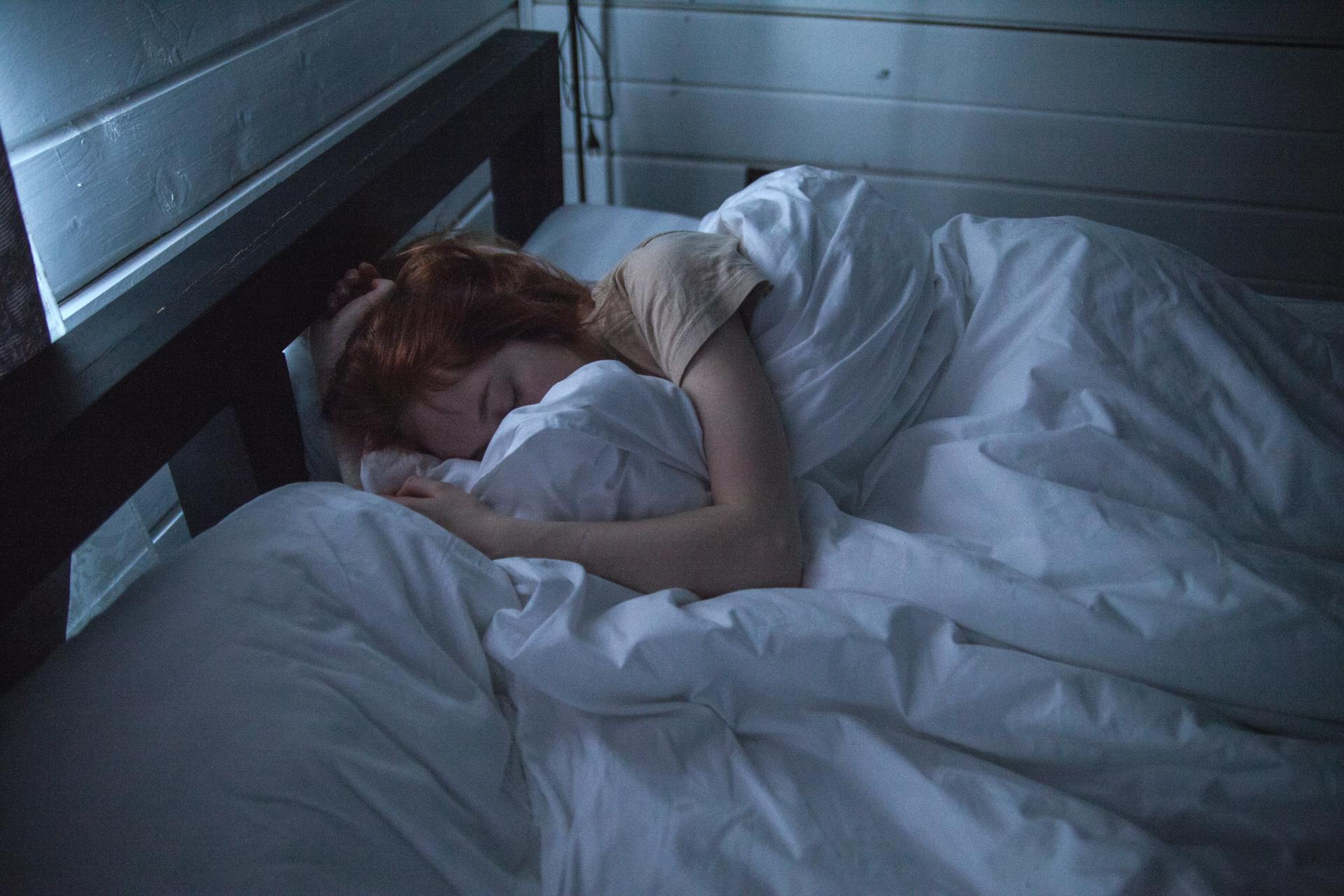Are you always exhausted?
One of the most common problems adults face today is constantly feeling tired. In fact, it is so common that a scientific study published in the Frontiers in Public Health journal found that “one in five adults worldwide experience general fatigue lasting as long as six months”.
However, just because it’s common doesn’t mean it’s good. Whatever the reason, it’s important to figure it out so you can fix it and maintain overall good health.
From stress to not drinking enough water, here are 8 common reasons you may feel tired all the time, and what you can do about it.

Not Getting Enough Sleep
Let’s start with the obvious explanation. The most common reason people feel tired all the time is because they are not getting enough sleep.
It is recommended that most adults should get between seven and nine hours of sleep each night—so if you’re falling short of this, it’s probably why you’re tired.
So, how do you magically get more hours of sleep in?
Not Getting Enough Sleep
If you want to get more sleep but feel like you don’t have enough time, take a moment to reevaluate. Look at your evening routine and see what you can change that might be affecting your quality of sleep.
For example, avoiding electronic devices while winding down for bed is important.
You might also consider adjusting the temperature or the darkness of your bedroom, and eliminating any disturbances that may hinder you from drifting off.
Feeling Stressed
Stress can have a major impact on your sleep—as well as many other aspects of your health.
A study published in the BMC Psychiatry journal highlighted how work-related stress was the most common cause of fatigue in participants.
So, if you happen to have a high-pressure job, this may be the reason you’re always tired.
Don’t worry, there’s a solution for this too.
Feeling Stressed
Believe it or not, mindfulness and meditation have proven abilities to significantly lower stress levels. As well, yoga is a good way to combine both of those things.
Or, if you’d prefer, a therapist can help you decompress after a long week, and provide strategies for reducing stress.
 Andrea Piacquadio, Pexels
Andrea Piacquadio, Pexels
Too Much Caffeine
While this may sound strange, we promise it’s true. Coffee is most people’s go-to when they’re needing to perk up, but too much of it can actually have the opposite effect.
Too much caffeine will actually interrupt your sleep cycle, causing you to feel more tired, and thus making you consume more caffeine, so the cycle of poor sleep continues.
Too Much Caffeine
Cutting down on caffeine can be difficult at first. An easier way to get started is to opt for beverages with lower caffeine content, like green tea.
Energy drinks have a much higher amount of the stimulant, and sadly, so does coffee.
Not Drinking Enough Water
Dehydration plays a big role in fatigue.
Scientific studies have shown that dehydration can lead to lower energy levels.
The NHS recommends around eight glasses of water a day, but this can vary based on age and weight. You should drink even more water if you are pregnant, breastfeeding, in a hot environment, doing physical exercise, or are ill.
But how do you know if you’re dehydrated?
Not Drinking Enough Water
Of course, feeling tired all the time is a telltale sign that you're dehydrated. But you may also experience headaches, dizziness, dry lips, dry skin, and feeling more thirsty than usual.
If dehydration is the culprit for your fatigue, you should see an improvement in only a matter of days after increasing your water uptake.
Not Eating a Balanced Diet
Eating a balanced diet is exceptionally important for your overall health, but a lack of calories and essential nutrients can really curb your energy levels.
Without enough nutrients, your body will start to break down fat and muscle instead—leading to fatigue.
But what happens if you eat too much instead?
 Maarten van den Heuvel, Pexels
Maarten van den Heuvel, Pexels
Not Eating a Balanced Diet
Eating too many processed foods or foods high in sugar will also keep you feeling tired all the time, because it will lead to spikes and crashes in blood sugar.
You can avoid this by incorporating fruits, veggies, legumes, and healthy proteins into your diet to keep your energy levels in check.
You’re Going Through Menopause
Women who may be going through menopause will undoubtably feel exhausted a lot of the time. Not only will you feel lethargic during the day, you have also struggle to sleep at night—which will only continue the cycle of poor sleep once again.
This happens due to fluctuating hormones, as well as the general discomfort of menopause—hot flashes, night sweats, etc.
So, what can you do about it?
You’re Going Through Menopause
Well, the only way to get through menopause is to get through it. Wearing lightweight pajamas and keeping your bedroom cool can help eliminate night sweats and hot flashes, and drinking plenty of water can help keep your internal temperature in check.
You might also consider hormone replacement therapy to ease those symptoms, if your doctor deems it right for you.
Too Much Sleep
Yes, you read that correctly—too much sleep can also make you feel groggy all the time.
A 2018 study by the University of Western Ontario found that sleeping too much could have a detrimental effect on the brain, because it “disrupts the body’s circadian rhythm”—your internal clock.
How can you fix this?
Too Much Sleep
Remember, the average adult only needs about 7-9 hours of sleep each night. So, if you often find yourself falling asleep on the couch during the day, try getting into a new hobby that you can do when you’re bored instead.
As well, natural light in the morning will help you avoid sleeping in or feeling tired when waking up.
An Underlying Medical Condition
If none of these reasons seem to be the culprit, there could be more serious issues for your constant exhaustion.
Some of these could include anemia, diabetes, heart disease, sleep apnea, thyroid issues, and depression.
While this is usually not the case, it is important to rule it out anyway.
An Underlying Medical Condition
So, if you’ve been feeling tired for several weeks, and you cannot seem to find the reason why, considering taking a trip to the doctor for a medical professional’s opinion.
Persistent exhaustion can affect your daily life, affecting your mood, interrupting weight loss, and much more.
Final Thoughts
A balanced sleep schedule is much more important than people think. But it isn’t the only reason for always feeling tired. There are many reasons someone may feel exhausted all the time, but the good news is, there’s usually an easy fix.
Do any of these reasons sound familiar to you?
What did we miss?
Let us know in the comments.






















